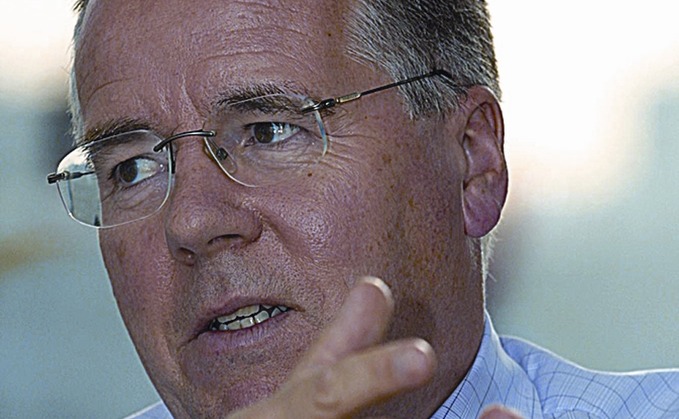
John Moret is principal of MoretoSIPPs
I joined the pensions industry in 1970 when a radical new code of pensions tax approval was introduced. Since then, there have been many attempts made by governments of different political persuasions to improve the prospects for pension savers and yet I would argue that today the outcomes for many of those pension savers are no better than they were 50 years ago.
Over the last twelve years it's been my good fortune to chair The- Pensions-Net-Work during which time I have listened and engaged with nearly 500 pensions experts. My thoughts have undoubtedly been shaped by a number of those experts. Yesterday's election will almost certainly be the last to take place whilst I am still working so I thought I would put forward a shortlist of suggestions for the incoming government to consider. I am not optimistic about their adoption but one can but dream!
- Top of the list without any question is pensions simplification. Since the last so-called "simplification" in April 2006 the pensions legislative and taxation landscape has become ridiculously and unnecessarily complicated. There is no chance of increasing consumer engagement with pensions whilst the current complexities remain or increase.
I would establish an industry wide pensions team of experts and charge them with producing a radically simplified regime concentrating solely on defined contribution (DC) pensions - which are the future. They should ignore defined benefit (DB) pensions for the purpose of this exercise – for several years I have advocated two separate regimes. The team should produce proposals covering all parts of the pensions savings lifespan – including accumulation and decumulation with the aim of removing as many anomalies or other historical quirks such as the artificial age 75 death benefit threshold and the multiple drawdown structures that currently hinder post-retirement planning.
I believe there is scope to take a considerable element of cost out of the operations of DC pensions with a new simplified regime to the benefit of all DC pensions savers.
Once completed and accepted the team could then consider potential simplification of a separate DB regime – and the trickier cross-border issues such as pensions transfers. - Ensure that the pensions dashboard has the resources and cross-industry support necessary to meet the timetables now laid down. There is so much negativity around this project but when implemented I believe it really will transform the pensions world with much higher levels of engagement across all age groups.
The use of commercial banking apps has grown enormously in a relatively short space of time and there is no reason why the same cannot be true of pensions API technology via commercial dashboards. - Accelerate the "pot for life" reforms which global experience shows will again increase consumer engagement particularly once commercial dashboards are up and running. Hand in hand with these reforms I would make a radical proposal for solving a large part of the small pots issues by suggesting that any pot below a de minimus level can be encashed. The dashboard will increase awareness of small pots and an encashment facility would rapidly reduce the scale of this problem. If the potential loss of tax revenues is seen as too big a pill for the Treasury to swallow then a levy of say 10% on all encashments might achieve both objectives. The de minimus level would obviously need careful consideration depending on the small pots data but I'd suggest an 80/20 principle is adopted i.e. pitch the limit so that 80% of the small pots could be encashed.
- Extend the auto-enrolment coverage to include all the working population regardless of earnings and age and find a way of extending the coverage to the self-employed. Also agree and stick to a plan for ratcheting up contribution levels over a five or ten year period to a level which will optimise the prospects of all those auto-enrolled emerging with acceptable levels of pensions savings outcomes.
- Encourage, perhaps with incentives, pension scheme investment in care homes and retirement villages with the aim of providing a solution to the growing problems of an ageing population and housing shortages. The projected quadrupling of those aged over 85 by 2050 could have a devastating impact and yet no government has yet grasped the nettle on an integrated social care policy and plans for an ageing population.
There is a lot more that could and should be done to improve the pensions landscape. For example, I advocate one pensions regulator for all DC pensions regardless of whether they are workplace or individual arrangements – and similarly one ombudsman to deal with all complaints and one compensation regime. These regulatory changes would go hand in hand with the simplification proposal.
More action is also needed on the growing problem of pension scams and frauds. I don't have a specific proposal in this regard but I would urge government to engage with the industry experts in this area. A pan-industry task force including regulators should be established and supported.
Unlike the well-known quote "the only limits are those of vision" sadly in the context of pensions I am afraid the limits are far greater – not least those of vested interest! But there is no harm in dreaming!
John Moret is principal of MoretoSIPPs
This article was published as part of Professional Pensions' PP Pensions Commission – which is bringing together industry opinion and ideas on the future of pensions to send to the new government
Send your thoughts and ideas to the PP Pensions Commission via email to [email protected] by 19 July







